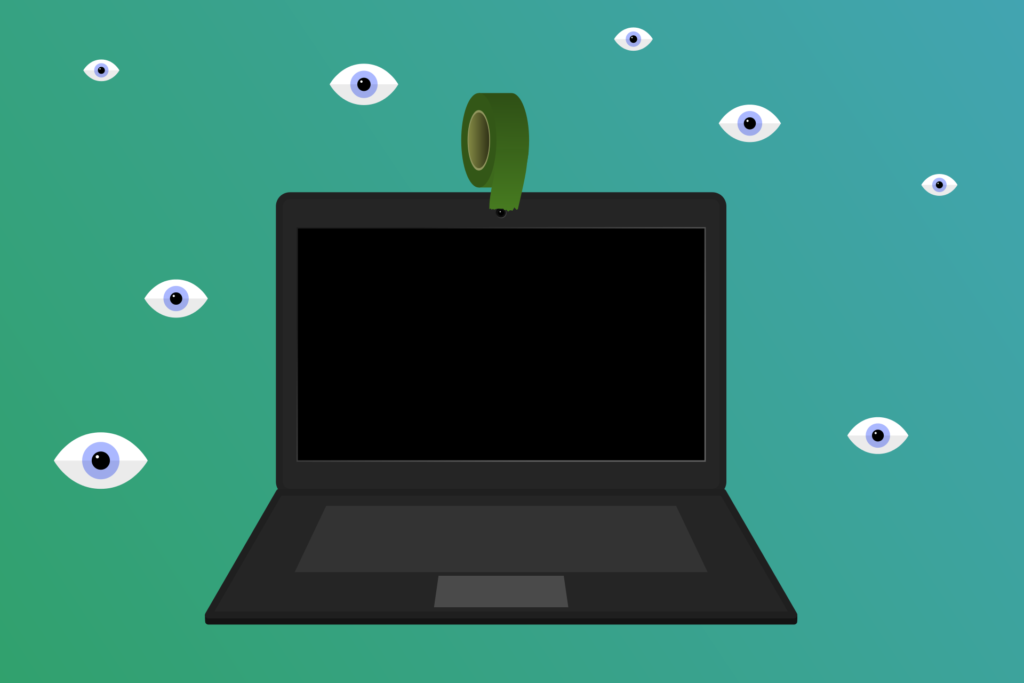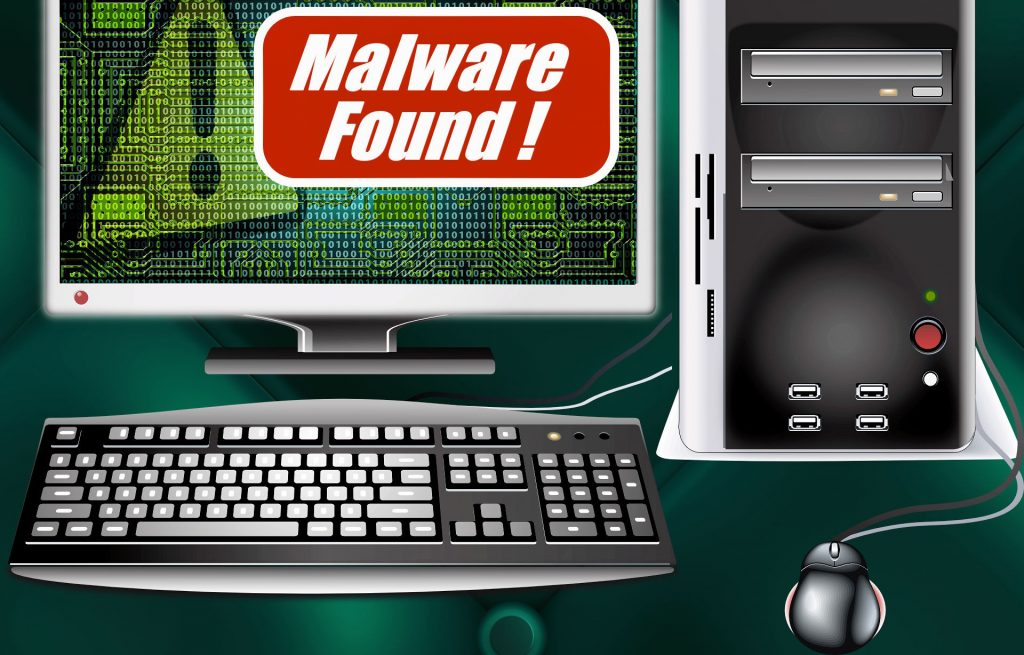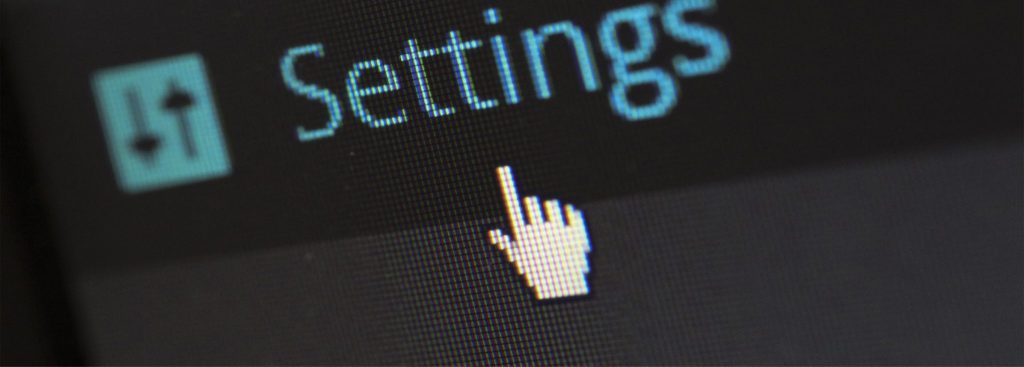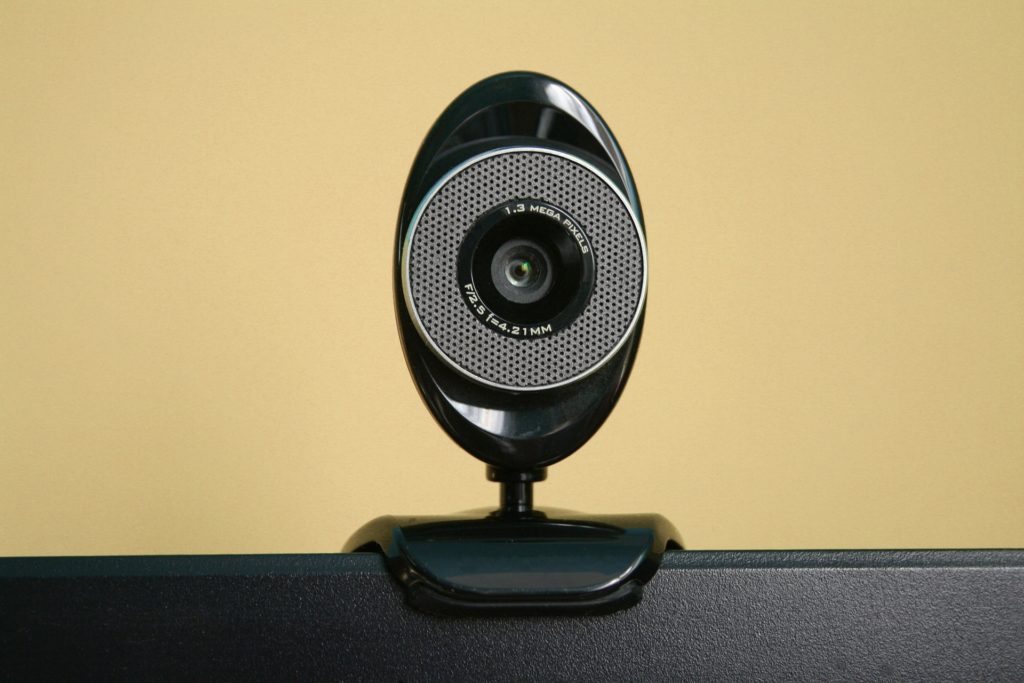If you are one of the millions of employees who find yourself working remotely because of the COVID-19 pandemic, video conferences and meetings have become a regular part of your daily work-from-home routine. And this likely means your webcam is being used more than it has in the past. But do you feel like you are being watched every time you use your computer — even after the meeting is over? Your instincts might be right, so check: webcam hacking is a possibility.
There are some good reasons so many people, including Mark Zuckerberg, cover their webcams with tape or dedicated webcam covers. It’s pretty astounding that there still are people out there who take their time to hack into webcams. Besides, you may wonder why they would go through all that hustle with all the other ways to hack a subject and create mayhem. A hacker would just easily intercept the information being delivered. But, hey, don’t let your guard down because of this. Some malicious actors out there will go to great lengths to prey on people for a variety of reasons. So, use the following techniques to avoid becoming a victim.
How to tell if someone hacked your webcam

First, it is vital to have good antivirus and anti-malware software on your computer. Not only can these applications stop ransomware and other attacks, but they can also protect your webcam privacy.
But before you can put a stop to any potential webcam hacking, you first need to know the signs that someone else has gained control of your webcam. Here’s what you should watch for:
Observe the indicator light
Is your indicator light on? Is it flickering or acting abnormally? This is your first sign that things aren’t right. It might indicate that you’re being watched. But, before you consider taking action, check that no apps are running in the background. Some apps tend to use your webcam once in a while, such as monitoring software that your employer has installed (with your approval) while working remotely. To be on the safe side, do some cross-checking.
Go through your storage files
Check whether there are video or audio files in your storage that were not created by you. If someone is spying on you using your webcam, your computer will store some details.
You could easily figure out there are audio and video files you didn’t create when you go to the webcam recording folder.
Check for mysterious applications
In instances where you might download a virus or malware without knowing, your webcam might be used. Your camera will run as a part of an app that you are unaware of in such a case. Do you see a notification telling you that your webcam is in use? If yes, then clearly an application is using it.
Do a malware scan

This is done to figure out the nature of the app potentially using your webcam. Running a malware scan is easy; you simply need to follow the steps below:
- Boot your computer into safe mode. This helps in stopping everything other than the necessary programs and drives.
- Delete all temporary files. This will speed up the scanning process.
- Run the antivirus that is installed on your computer. This will enable you to detect any virus present.
- Run Google Chrome’s built-in malware scanner. It will detect the virus that your antivirus program couldn’t see, thanks to its up-to-date library of viruses.
Check your camera
Keenly observe your camera, always. Is it behaving abnormally? With the regular enhancements in technology, cameras are becoming even more sophisticated.
Some are designed to move around for better video capture. In other instances, cameras tend to adjust their lenses for a clearer vision.
So, check for these signs if you’re not using your camera. It is advisable to block your camera if you’re not using it.
Check your webcam security settings

If someone has hacked into your camera, then they must have altered the security (password) to your camera. Here are ways to figure that out:
- The password to your camera has been changed to the default setting.
- You are finding it difficult to make changes to your settings.
- The admin name has been changed.
- Your firewall has been switched off.
Observe your data flow
By doing this, you will figure out how much data is being used during an online session. If you see a sudden increase in Internet data being used, then there is a cause of alarm.
Attempt to use your webcam
You might consider closing all running programs and applications before doing this. Are you getting a notification that your camera is in use when you try to use it? This might indicate that your webcam has been hacked.
How to avoid webcam spying

Camfecting is a prevalent form of hacking. Trust me; you don’t want to become a victim of this. This kind of situation might leave you vulnerable and at risk of blackmailing. To save you from such trouble, here are ways to avoid computer webcam hacks.
Ensure that your firewall is always enabled
A firewall keeps all suspicious activities and connections at bay all the time. You can either use your computer’s built-in firewall or get your hands on a third-party firewall. They all work. The main thing is you must use one.
Should you wish to explore third-party firewalls, you will find many quality firewalls out there that do not cost any money. PrivacySavvy, a digital privacy and security publication, has compared and listed almost 20 free firewalls; feel free to check that resource out.
And if you want to get going with the built-in firewall of your Windows computer, below are the steps to follow for you to access firewall settings:
- Go to the Control Panel.
- Click on system and security.
- Then go to the Windows Defender Firewall.
- Turn on the Windows Defender firewall.
Beware of phishing
There are instances where hackers may pretend to be support agents. They may contact you, claiming that there might be an issue with your computer. Don’t fall prey to this. Ensure that you do background checks on your computer yourself. Another widespread phishing campaign is the bogus email inviting you to a Zoom or Microsoft Teams video conference. Zoom, especially, because of its immense popularity during the pandemic, has continuously been in the crosshairs of threat actors.
Cover your webcam when not using it
If you’re not using your webcam, cover it. It’s as simple as that. It will prevent someone from watching you using your webcam even if they have your cam hacked by any chance.
Avoid using public WiFi
Free stuff, especially WiFi, is very enticing. As enticing as it may seem, you should better stay away from it. Public WiFi networks are prone to hacking, and that is why hackers love them. You might turn out to be easy prey on the public Internet.
If you must use public WiFi, you may consider using a VPN (virtual private network) to encrypt your connection.
Top VPNs available out there, such as ExpressVPN and NordVPN (to name a couple), have military-grade encryption and advanced security features. That will protect you from multiple cyberthreats.
Use up-to-date antivirus programs
Keeping your antivirus programs up-to-date is critical because new malware, viruses, and spyware appear almost daily. A quality antivirus will get updates often to help detect and bust malicious threats before they get to launch any harm.
Always question what the hackers have on you
When a hacker contacts you and claims that they hacked into your webcam (usually to claim they have evidence you’ve done something embarrassing or illegal), find out precisely what they claim to have on you. Establish whether the stories they are telling you are accurate. Is there a tale making sense? Keep in mind that these kinds of sextortion scammers target your emotions and usually haven’t really hacked your webcam. They are just hoping you’ll fall for their scam, and you’ll pay up.
Webcam hacking: Keep your eyes open
Achieving maximum-possible computer security is like completing a puzzle. You need to make multiple pieces fit into the right place. But fortunately, most of that only requires a little legwork and perception. All in all, always be on the lookout. Observation is an essential key, especially when trying to figure out whether someone is spying on you.
This article has been updated with new information.
Featured image: Pixabay



